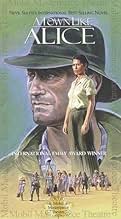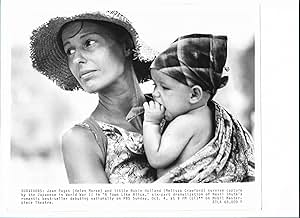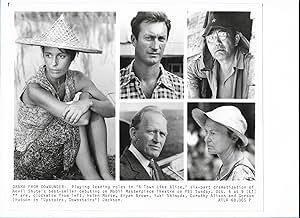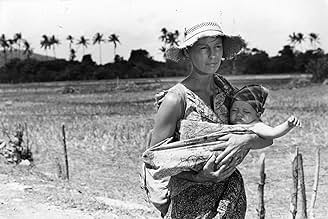Apparently this Australian film based on Nevil Shute's novel exists in more than one form. Beware heavily cut versions sometimes shown on cable or satellite, running anywhere from 95 minutes to 2 hours. Only the full 5 hour miniseries version tells the story properly. It is a very close realisation of the story, suffering only from editorial faults commonly found in TV movies: choppiness and episodic progression. But this excellent cast carries the story forward very well with generally good production values accompanying their work. Yuki Shimoda is notable as "Gunso Mifune", one of the guards assigned to accompany the women on their agonising trek. In the end he becomes a friend. You will agonise with him when his loss of face leads him into death.Helen Morse as "Jean Paget", pretty but not a great beauty (she resembles Sigourney Weaver a bit)registers just the right amount of spunk and winsomeness as the occasion demands. The miniseries properly emphasises the beautiful love stories, three of them: "Joe" and "Jean", "Noel" and "Jean", and "Jean" and Willstown. Gordon Jackson plays "Noel Strachan" appealingly, but as a somewhat younger man than Nevil Shute indicated in the novel. The third love affair I mentioned doesn't get quite the emphasis it is due, and the full significance of the title is diminished. "Jean" is devoted to the goal of bringing businesses to Willstown that will attract young women and girls and their civilising influence to this god-forsaken out back town. She wants to make it "A Town Like Alice"; Alice Springs, that is. We get only a few hints of this in several scenes. If you have the five hours to spare, this miniseries is a truly rewarding experience. Nevil Shute based his novel about the cruelty of the Japanese military in shunting a large group of women and children from one place to another on the Maylay Peninsula on a true occurrence. It happened on Sumatra, according to Shute, though, rather than on the peninsula. The crucifixion of "Joe" by a Japanese officer for stealing chickens to feed the women is probably fiction, but the cruelty of the Japanese in dealing with prisoners is certainly a matter of record.






























